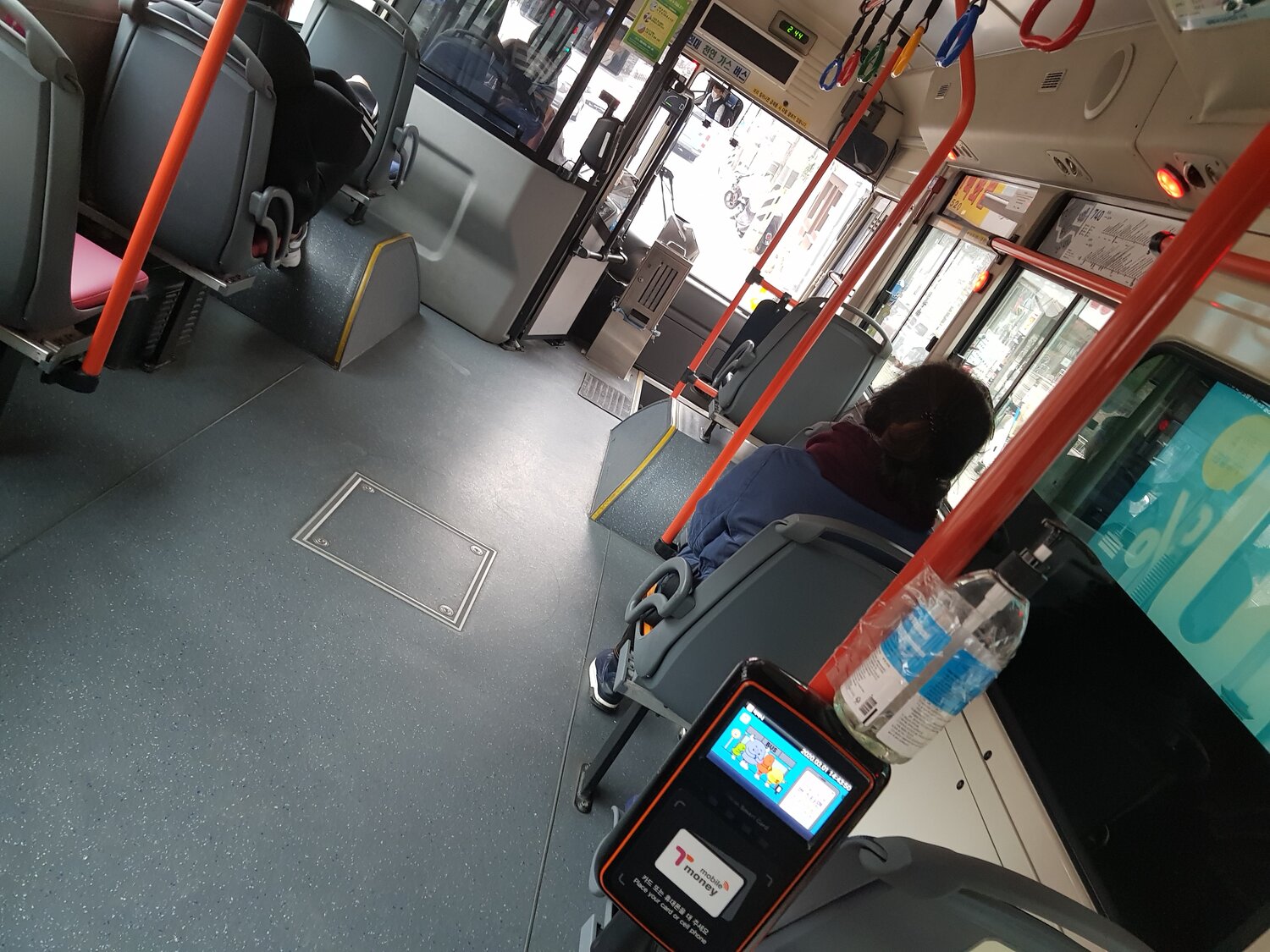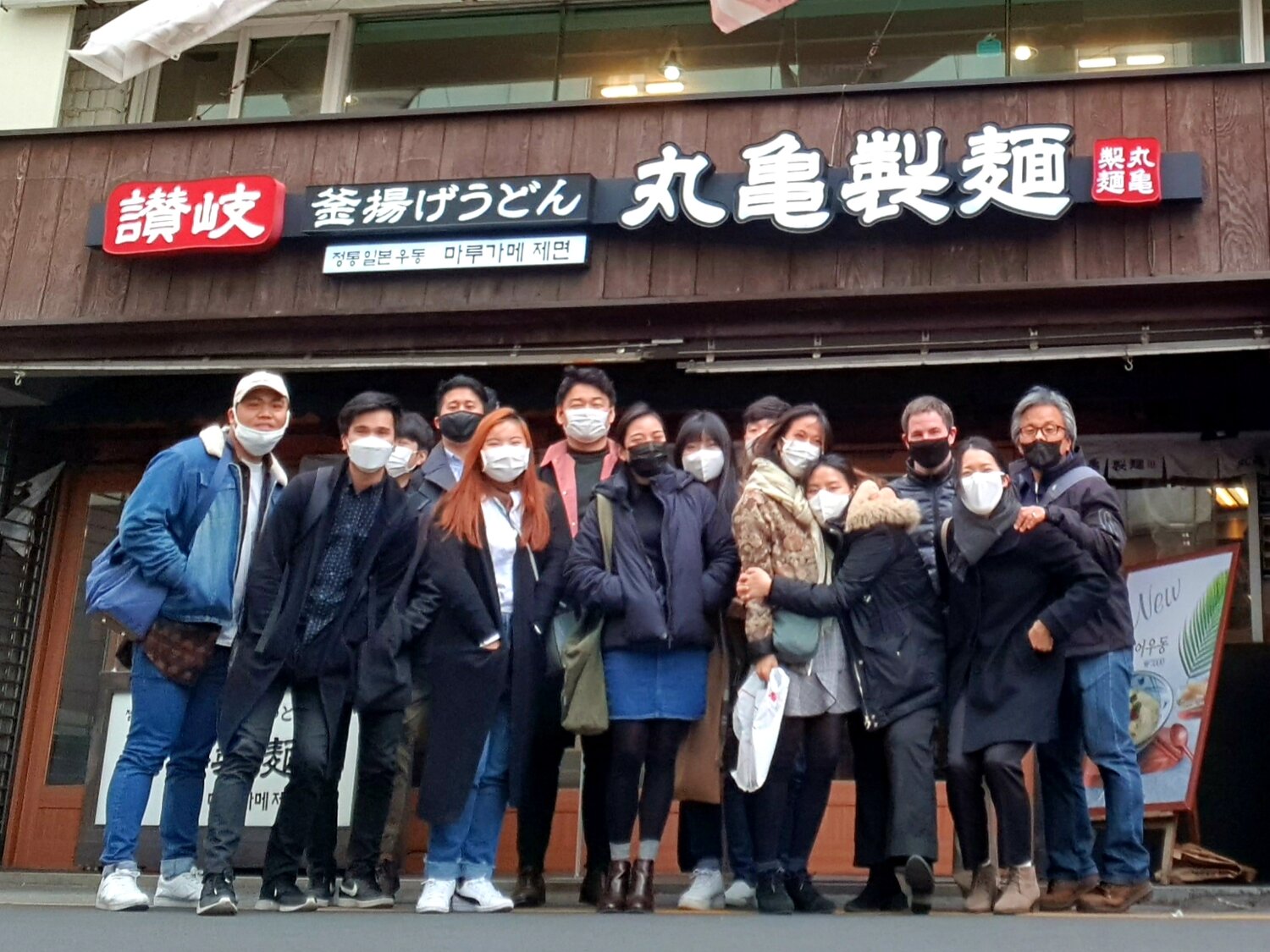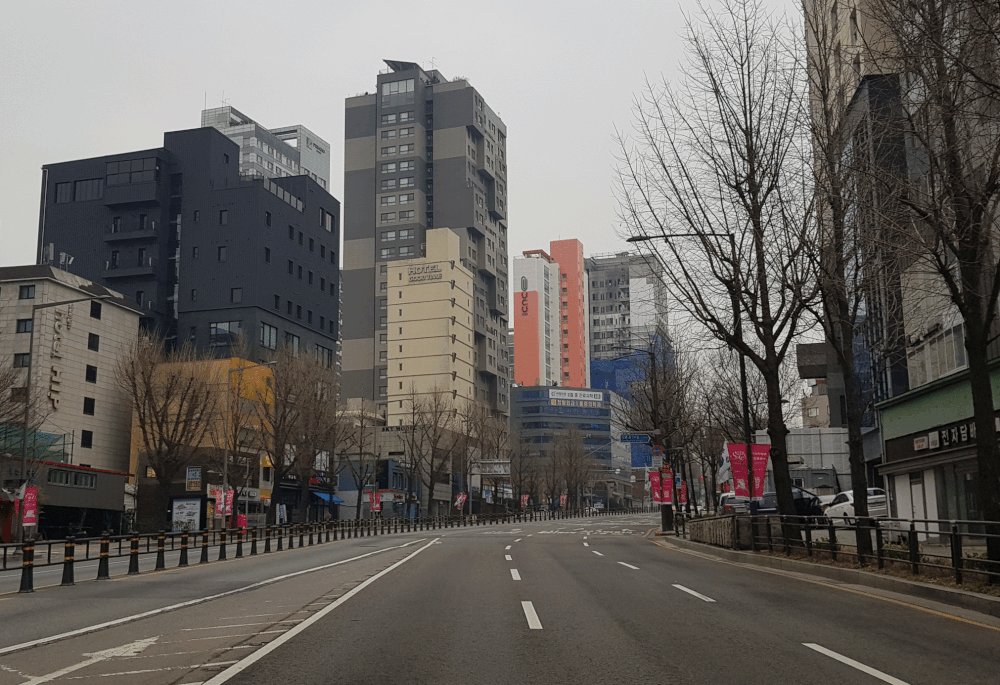South Korea presently has the most cases of people infected with the COVID-19 (Corona) virus, outside of China. At the time of writing, there have been over 5,000 confirmed cases with 30 deaths related to the outbreak. As the Korean government has raised the infectious disease threat alert to the highest level, many experts are predicting that the “worst is yet to come.” With all that is in the media, political and economic ramifications, contradictory scientific evidence, rampant racism, conspiracy theories, and fearmongering, I wanted to share a more personal day-to-day perspective on life here in Seoul since the onset of COVID-19.
The New Normal
In general, there is a quiet shadow of anxiety that has woven itself into the fabric of this nation. The ubiquitous masks donned by much of the population and hand sanitizers found everywhere are persistent reminders that the crisis is imminent. With the present shortage on masks, people wait four to five hours in long lines at the post office or marts where they are rationed and distributed.
More than anything, there are a lot of “inconveniences” to life while waiting for the unknown. Two of my international trips were recently cancelled, as well as a myriad of meetings and events. Most schools, including my graduate university where I teach and study, have a delayed start to the semester (the academic year starts in March for most academic institutions in Korea).
When I hit the gym to work out last week, I found it was closed indefinitely. Some of my Chinese church members even told me they were denied entry to their fitness centers. Further, same-day online grocery shopping, which has been one of the greatest conveniences of living in Seoul, has a waiting time is about 4-5 days. It is surreal to see many store shelves bare, and people are no longer eating out at restaurants to avoid large gatherings, leaving restauranters worried about paying rent.
Moreover, a pervasively quiet lull hovers over the public areas and streets—quite the reverse from the hustle and bustle of a great city that never sleeps. The silence of the day is broken several times an hour by the cacophony of blasts that come from the government warning signals that simultaneously go off our phones. People are warned to stay indoors, but everyone seems go about their daily business, but with added caution.

Seoul boasts one of the most efficient and expansive public transportation systems in the world, but buses and subways remain dormant. People also avoid taxis and anyplace where an infected person may have been sitting. Professional sports are played with no fans and concerts are recorded with no audience. Further, department stores and major retail outlets with reported cases of visitors with the virus are immediately shut down for sterilization. There are hourly updates of new cases of COVID-19 and apps that show what areas have been infected. Whether it be medical staff, politicians, flight attendants, or even pastors, the virus shows no predisposition to who it claims as the next victim.
A Change in the Air
It is interesting, though, that many people are outside enjoying nature by walking, cycling, and running. Cabin fever and closed schools make it feel like a national holiday. Some say that the stoppage of factories in China has improved Korea’s air quality, as the weather has been quite nice recently. On a recent bike outing, I was surprised how crowded the Han River pathway was. Maybe people trust it to be safer outside where germs can disperse, rather than stay in closed in spaces.
Perhaps Korea needed this respite from the fast-paced, relentless, and monotonous hamster wheel of life in a nation ranked second in the world only to Mexico for most hours worked per year. Employees have been forced to work remotely and figure out creative ways of communication. In this way, the effect of COVID-19 is not just about “gloom and doom” on the peninsula, but rather about the tenacity and resilience of the Korean people. After all, in just the past century, the nation has survived through colonization, civil war, military coup, dictatorship, IMF, and other diseases like SARS and MERS.
The Church’s Response
Most houses of worship, including a majority of megachurches, canceled their worship services for the past couple weeks but offered live-feed streaming through social media or other platforms.
Our church, however, decided to go forward with a physical worship setting at the regular venue and time, as well as provide online video services. For our recent services, all worshipers in attendance were required to wear masks and wash their hands. We greeted each other with a holy fist bump!
Herein lies the tension for the believer: Do we take a risk and trust in a God who covers us from the “pestilence that stalks in the darkness or the plague that destroys at midday” (Psalm 91:6), or do we live cautiously and comply with government recommendations to cancel religious meetings? Meeting for worship can be viewed as neglecting civil responsibility or standing on higher moral ground, depending on what perspective one looks at it. And yet, what use is faith if we do not exercise it and only live within our boundaries of comfort? As a fellow pastor stated, “I’m all for laying our lives down for the Gospel; I’m not all for laying our lives down for a Sunday service program.” Perhaps this is a great opportunity to explore different ways of meeting for the safety of our people and keeping them out of harm’s way. It is a loving thing we can do as leaders.

On another note, many of my colleagues and I are convinced that contrary to the nation guarding themselves with masks, this outbreak is uncovering the masks of our society, as well as that of the church in Korea. The idols of success at whatever cost and education at the sacrifice of our youth do not really matter when death stares you directly in the face. These idols are also hidden behind the veils of religiosity as Jesus is beginning to overturn the tables to reveal what lies beneath.
Perhaps it is too early to point to God’s plans and purposes, for He alone is Alpha and Omega and the author of the beginning and end of the greater narrative. We wait and pray in eager anticipation to see how God is moving, as we are only but a small piece of the greater mosaic He is creating. We do know, however, that all things have been created through Him and for Him (Mark 4:41; Colossians 1:15-17). He is the same yesterday, today, and forever (Hebrews 13:8) and always does what is wise, good and just, with power and foreknowledge to restrain, start, and strengthen. No plans of the Lord can be thwarted (Job 42:2) and His plans stand firm forever and the purposes of His heart through all generations (Psalm 33:11).
We have more questions than answers, but could it be that He is softening the hearts of men in preparation for Korea’s next great revival, just as He did with the people of Nineveh when Jonah arrived on the city’s shores? Could it be that the Lord is exposing the glorification of successful ministries, popular pastors, and the “profitability” of church by closing its doors for a season, making us get back to the real heart of a genuine relationship with the Creator? Of course, suffering is never for the sake of punishment, but He does allow it to purify. He loves us too much to keep us the way we are.
Perhaps this is a time of planning God’s groundwork for an outpouring of His Holy Spirit on this generation. Our continued prayer is that places like Wuhan would no longer be known as the epicenter for the coronavirus, but it would be ground zero for revival and church explosion. We pray that Daegu would not become a city full of fear and hopelessness, but rather become the launchpad for the gospel and new hope for the world.
Even with all this uncertainty, as someone who believes in a God who does all things for His glory and for our good, I believe there is a greater purpose in all of this. He is sovereign and in control. Although we should be vigilant and sensible, there is no need to let fear dictate our lives. We walk by faith, and not by sight (2 Corinthians 5:7) for He is our help and our shield (Psalm 33:20). As we are praying over this situation, our hope is that the church would be bold and serve those around us as we walk forward in love and humility.
Prayer Requests
Please pray for us and with us.

